A Conversation With Eguchi Taro of “Eguchi Dango,” a mochi store in Nagaoka City, Niigata
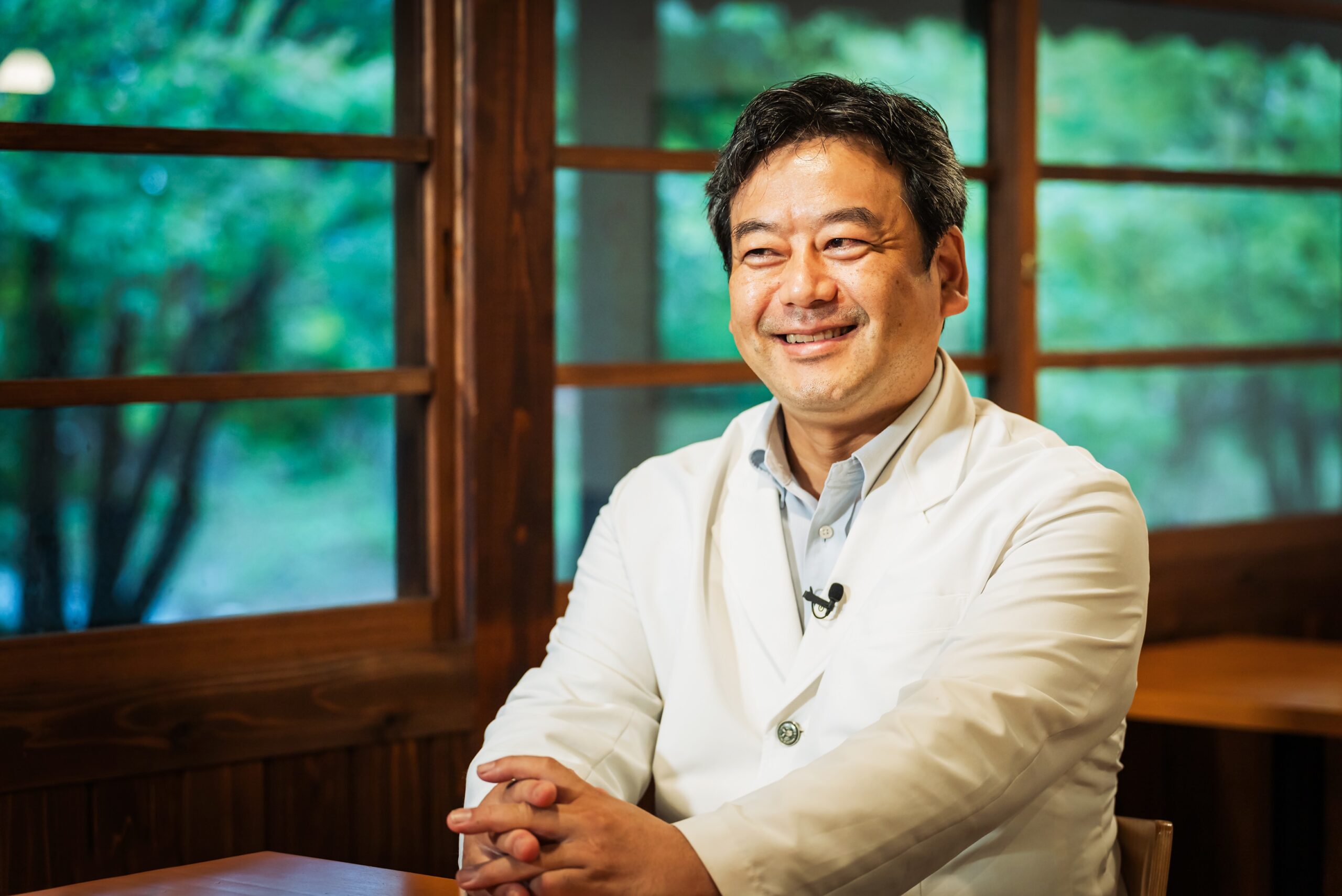
The renowned mochi store, Eguchi Dango, was founded in 1902 in Nagaoka City, Niigata, and has been loved by locals for its delicious handmade mochis such as Sasa Dango, Goshiki Dango, and Nagaoka Sekihan. The main store, housed in an old Edo period farmhouse in the Niigata countryside, and the Settaya branch in the brewing town of Settaya are both must-visit tourist attractions.
Eguchi Dango
Niigata City, Nagaoka
Kumazawa: What led you to use our hydrolyzed rice products in your dorayaki (Japanese Red Bean Pancake)?
Mr. Eguchi: We primarily make dango, a traditional Japanese sweet at Eguchi Dango. Our main challenge is the short shelf life of dango. We ventured into dorayaki making to offer customers something with a longer shelf life. Maintaining the freshness of our baked dorayaki would make it a more appealing gift. However, this came with many challenges, from the dorayaki hardening over time to moisture loss and texture loss. We also wanted to use minimal additives. This led us to experiment with NHP’s hydrolyzed rice products, which we found to help preserve the dorayaki’s texture and moisture effectively. On top of these benefits, the hydrolyzed powder uses rice as a key ingredient, which makes it all the more appealing to us.
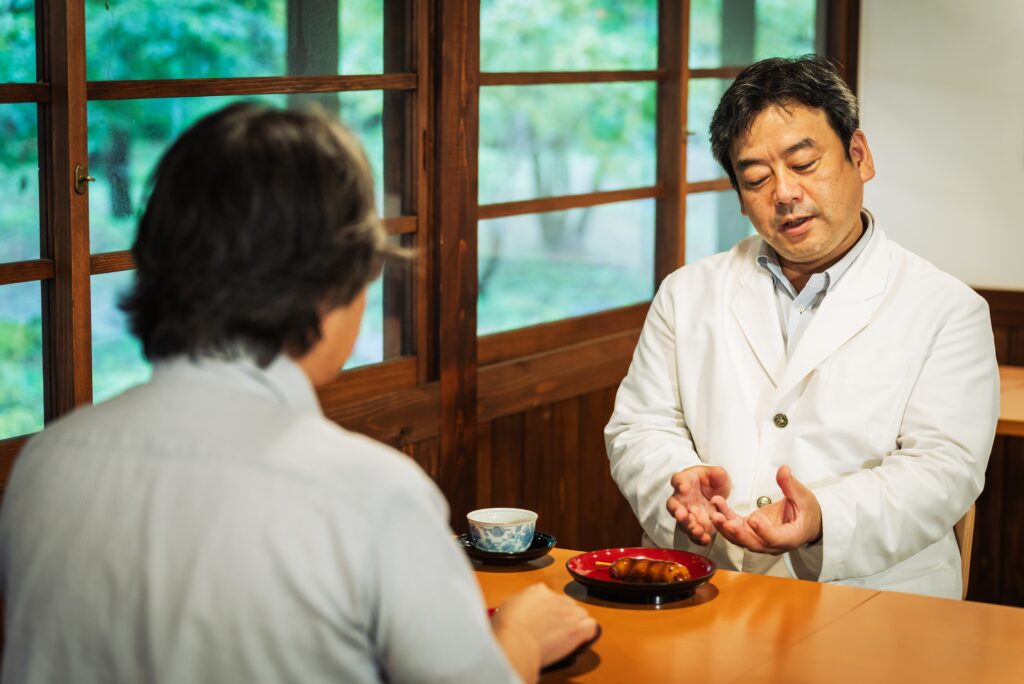
Kumazawa: Thank you. Our hydrolyzed products are not chemical-based and use a unique, patented hydrolysis process. The hydrolyzed rice product can be labeled as ‘rice flour’ in the ingredients list, which must be an appealing point for many food manufacturers. We ventured into rice hydrolysis to enhance the value of rice, so it’s an honor to know we could be of service to you. Moving on, Eguchi Dango has a long history and is an iconic dango shop in Nagaoka. How do you maintain the quality of your products, and do you have any recommendations from the Eguchi Dango lineup?
Mr. Eguchi: Our biggest priority is sourcing and incorporating locally harvested ingredients into our products so that people can appreciate the taste derived from our local produce.
For example, Niigata is known for its delicious rice. Our dango is made exclusively with 100% Koshihikari rice, a widespread Japanese rice variety. The flavor of our dango comes from the taste of the rice itself. So, while our dango might not be the best choice for souvenirs to take back home over long distances, we want visitors to Niigata to try them, just like they would sushi or any other local specialty. We hope they leave with fond memories, thinking, “When you talk about rice, you think of dango, right? Niigata has the best rice.” And for the locals, we hope everyone, no matter their age, will feel a sense of pride in being from Niigata, even from their childhood. That’s what we hold dear at our shop.
Kumazawa: This flagship store we’re visiting today is one of those places where your dedication shines through. I hear you can also make sweets here too.
Mr. Eguchi: Yes, that’s right. We’re committed to creating a space where customers can enjoy freshly made dango on the spot. We added experiences for tourists so that people of all ages can discover the joy of mochi and dango. We’ve created a space for families to make dango and sasa dango together – a place to foster memorable experiences.
Kumazawa: It’s a wonderful place; it captures everything you’ve said. Earlier, I saw a young customer in the store who mentioned they came to buy a dango for tomorrow’s Jugoya (Fifteenth Night), which surprised me. It’s rare to see young people observing the Fifteenth Night tradition with dango.
Mr. Eguchi: Many people have heard about Jugoya but don’t know what it’s about. It began as a harvest festival, a time to appreciate and celebrate the harvest. It’s a central part of our Japanese heritage. At our shop, we’re all about keeping these traditions alive. We throw events with great food and music, and for Jugoya, we set up moon-viewing displays and shared stories about the festival’s traditions. It’s been great seeing more people picking up Tsukimi dango (Moon Gazing Dumplings) during Jugoya, as if they thought, ‘Hey, it’s the perfect time for moon-viewing dango.’ This is the sort of enthusiasm that can help keep our seasonal traditions and the essence of Japanese culture alive for future generations. As these customs are fading from home life, I believe it’s up to businesses like ours to keep them going.
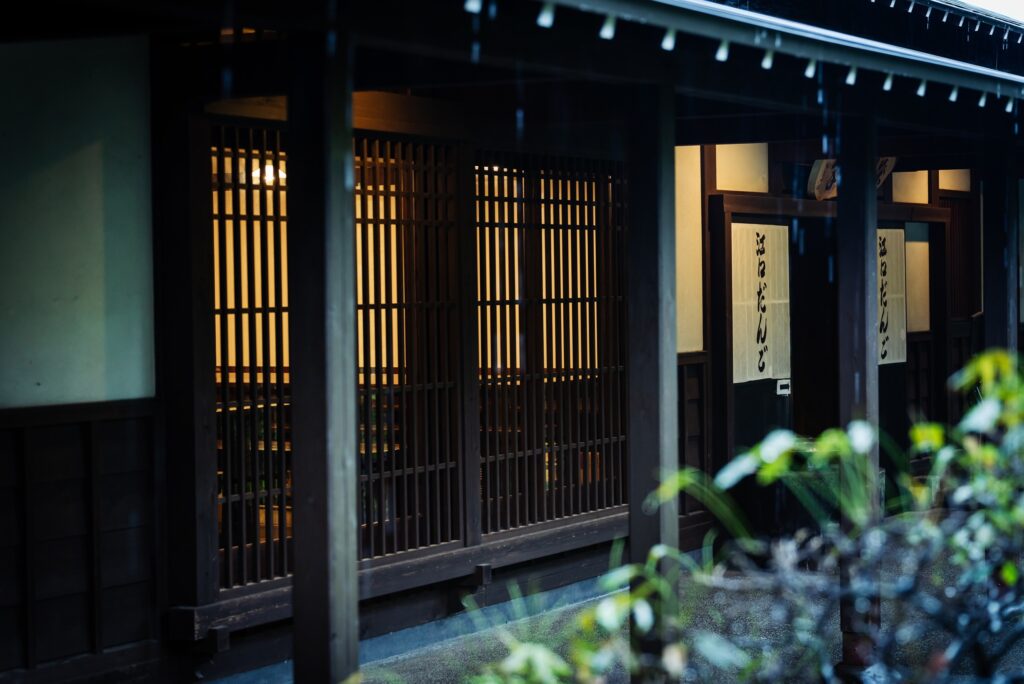
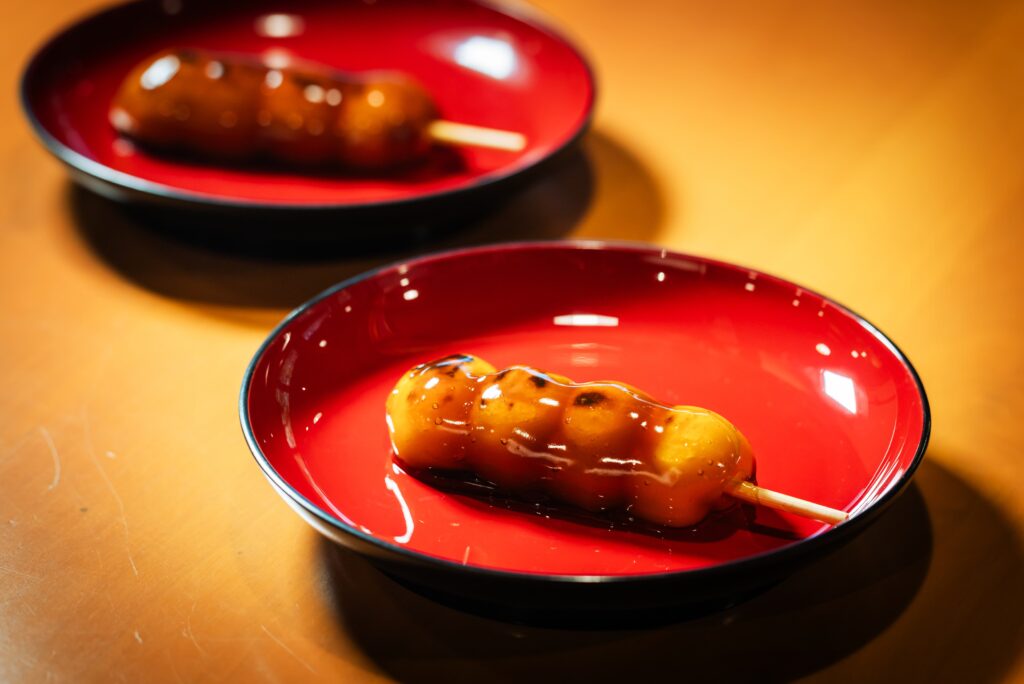

Kumazawa: Speaking of Japanese culture, we recently set up a new branch of our office in Singapore. We’re launching a new chocolate shop there in March 2024. The chocolates are special – allergen-free, plant-based and made with hydrolyzed ingredients. Our goal is to spread the word about Japanese flavors and our culture and shine a light on Nagaoka, where NHP is based. The cultural efforts you’ve been making at Eguchi Dango are exactly the kind of thing we’re looking to do in Singapore, too. We’re excited about possibly teaming up with Eguchi Dango for new projects, including what we’ve planned in Singapore.
Mr. Eguchi: That sounds like a great idea! The wagashi (Japanese confectionery) industry still has a long way to go in terms of global appeal compared to other Japanese foods like sushi, sake, and matcha. The idea of developing new chocolates using rice and plant-based ingredients, making them accessible to a diverse range of people, is truly remarkable. If we combine ingredients that previously didn’t go together using NHP’s innovative techniques, we could create something new, blending Japanese and Western methods.
Kumazawa: Exactly. Various aspects of Japanese culture have been spreading worldwide in recent years. For instance, dorayaki has become popular globally, partly due to its appearance in a famous Japanese anime. However, sometimes, traditional Japanese products sold abroad need more consideration for the customs of the locale in which they are being sold. For example, you can fill dorayaki with different fillings, blending the best of Japan with local ingredients. That’s where I see NHP’s strength and role – in adapting and combining the best of both worlds.
Mr. Eguchi: Absolutely. Dorayaki has become a global sensation thanks to the popularity of classic Japanese animes. It’s crucial to protect the integrity of tradition, but it’s equally essential for long-standing shops like ours to stay relevant by evolving with the times. Japan has always been great at embracing cultures from abroad, integrating them into our products, and keeping them alive as part of our culture. We craftsmen in Japan have a unique strength in this area, and I’m confident we can develop Japanese offerings abroad that resonate with local tastes. We’re excited to continue embracing new technologies like those from NHP to spread the word about even better food products.
Kumazawa: Thank you for that. We look forward to working together to create new, high-quality, delicious products. Thank you so much for sharing your time with us today.
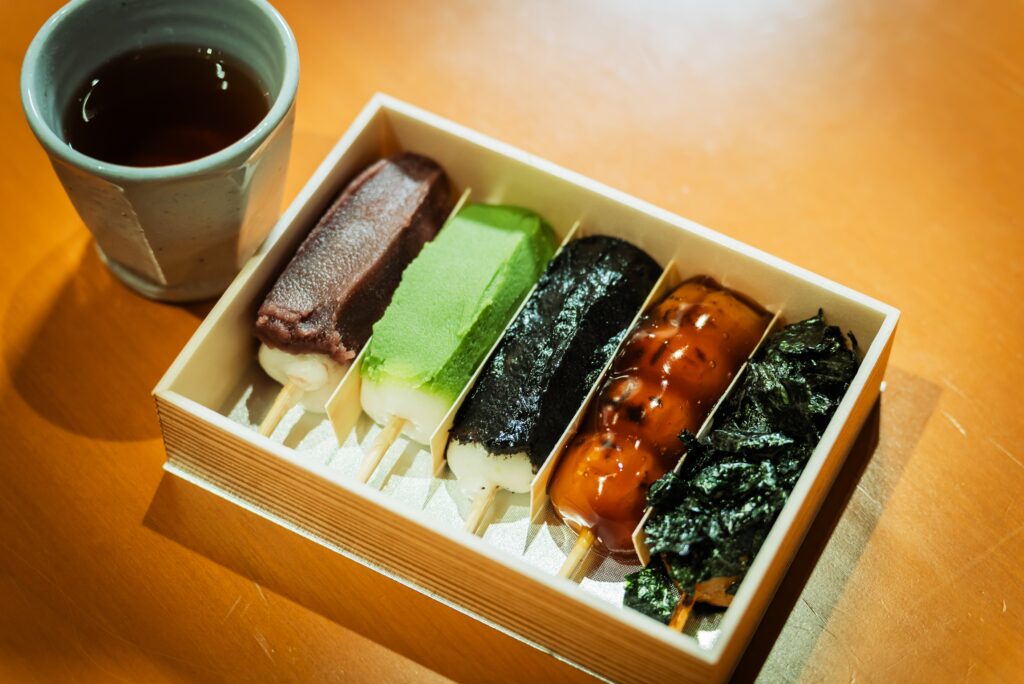
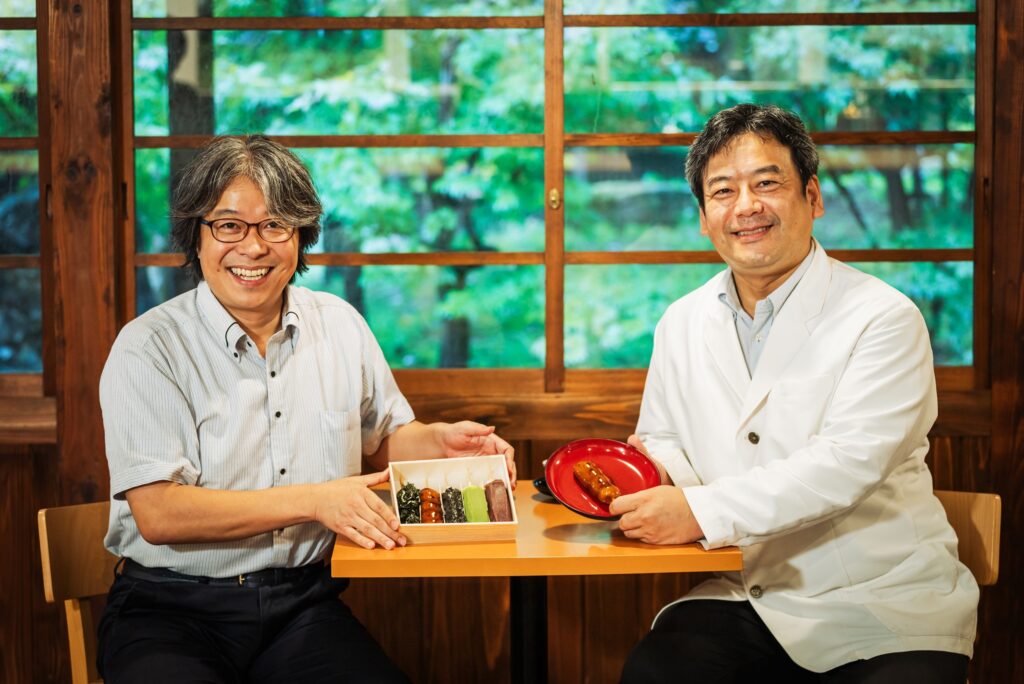
(Interviewer:Kumazawa,NHP)
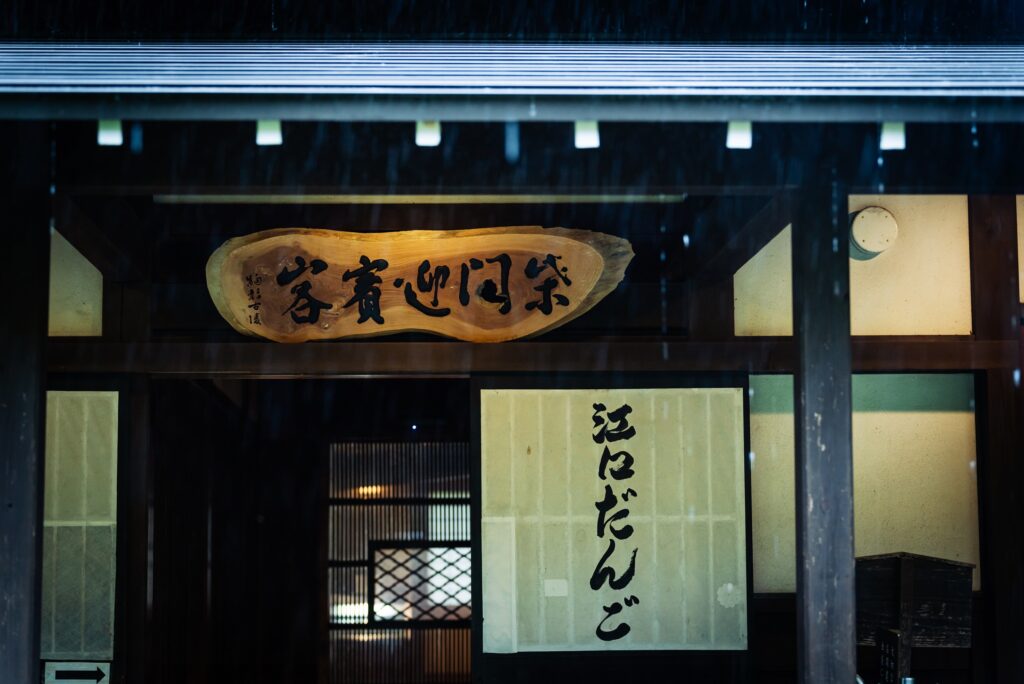
Eguchi Dango
52-1 Miyamotohigashikatamachi,Nagaoka-shi,Niigata
JAPAN 940-2043
